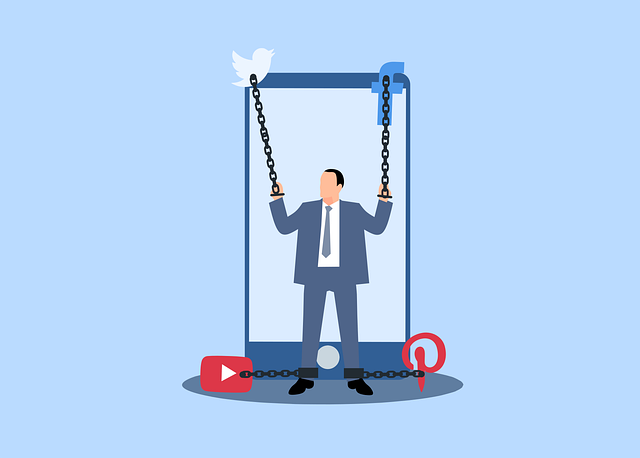Burnout among healthcare providers, particularly in demanding settings like Aurora Blended Families Therapy, leads to decreased efficacy and patient care quality. To combat this, Aurora offers a comprehensive strategy focusing on mental wellness through podcasts, self-care practices, and community engagement. They prioritize provider well-being with open communication, collaboration, and unique exercises for emotional healing, fostering a supportive environment. By implementing these initiatives, Aurora aims to prevent burnout, enhance professional development, and improve patient outcomes through holistic approaches like journaling workshops and evidence-based techniques.
Healthcare provider burnout is a growing concern, impacting well-being and patient care. This article explores comprehensive strategies to prevent and mitigate burnout among healthcare professionals. We delve into four key approaches, including creating supportive environments, integrating self-care practices, fostering professional development, and encouraging community engagement. As exemplified by Aurora Blended Families Therapy, these strategies can enhance job satisfaction and build resilient healthcare teams. Discover practical insights for sustainable well-being in the face of demanding healthcare landscapes.
- Understanding Burnout Among Healthcare Providers
- Creating a Supportive Work Environment at Aurora Blended Families Therapy
- Implementing Self-Care Practices for Long-Term Sustainability
- Fostering Professional Development and Community Engagement
Understanding Burnout Among Healthcare Providers

Burnout among healthcare providers is a growing concern, with high-stress work environments and demanding patient care routines contributing to significant rates of exhaustion. This phenomenon often manifests as a sense of emotional detachment, cynicism towards patients, and reduced professional efficacy. The impact extends beyond individual therapists; it affects the quality of patient care and can lead to increased absenteeism and early career departures. At Aurora Blended Families Therapy, we recognize that supporting mental wellness is paramount in preventing burnout.
The Mental Wellness Podcast Series Production offers a valuable resource for healthcare providers seeking to enhance their resilience. By engaging in regular self-care practices and promoting open conversations about mental health awareness, professionals can foster a supportive environment. Additionally, participating in activities outside of work, such as exercise or creative pursuits, can help rebuild energy levels and restore confidence, which is crucial for maintaining a positive outlook. These strategies, combined with the encouragement found in the Mental Health Awareness community, aim to create a culture that prioritizes both professional fulfillment and personal well-being.
Creating a Supportive Work Environment at Aurora Blended Families Therapy

At Aurora Blended Families Therapy, we understand that preventing burnout among healthcare providers is paramount to ensuring quality care and fostering a healthy work environment. We’ve developed strategies that focus on creating a supportive ecosystem where therapists feel valued, respected, and empowered. Our approach emphasizes open communication channels, encouraging staff to express their concerns and ideas freely. By fostering a culture of collaboration, we ensure every team member feels part of a tight-knit community, reducing feelings of isolation often associated with the therapy field.
In addition to these, Aurora Blends unique offerings such as regular Self-Awareness Exercises and sessions dedicated to Emotional Healing Processes play a pivotal role in stress management. We believe that when therapists prioritize their emotional well-being, they can better serve their clients. Through these initiatives, we aim to create a thriving, sustainable work environment at Aurora Blended Families Therapy, where our providers feel inspired, supported, and equipped to handle the challenges of their noble profession.
Implementing Self-Care Practices for Long-Term Sustainability

In the quest to prevent healthcare provider burnout, implementing self-care practices is paramount for long-term sustainability. Healthcare professionals often put patients’ well-being first, neglecting their own mental wellness in the process. This can lead to emotional exhaustion and decreased job satisfaction. At Aurora Blended Families Therapy, we advocate for a holistic approach that includes regular Mental Wellness Journaling Exercise Guidance and Self-Awareness Exercises. These practices allow healthcare providers to cultivate emotional resilience, improve coping mechanisms, and enhance their overall emotional well-being promotion techniques. By prioritizing self-care, professionals can better support their patients while maintaining optimal mental health.
Incorporating self-care routines requires dedicated time and effort, but the benefits extend far beyond individual wellness. When healthcare providers prioritize their own mental health, they become more present, attentive, and effective in their interactions with patients. This not only improves patient outcomes but also fosters a healthier work environment, where professionals can thrive without compromising their well-being.
Fostering Professional Development and Community Engagement

Fostering professional development and community engagement is a vital strategy to combat burnout among healthcare providers, particularly within diverse populations like Aurora Blended Families Therapy. By encouraging ongoing learning and skill-building, mental health professionals can stay abreast of the latest research and therapeutic techniques, enhancing their ability to support clients effectively. Workshops, conferences, and mentorship programs offer opportunities for growth while fostering a sense of community, which is especially important when addressing issues related to depression prevention within diverse communities.
Community engagement initiatives enable therapists to connect with local resources and advocate for mental health policy analysis and advocacy. Collaborating with schools, community centers, and support groups allows professionals to integrate evidence-based practices into their work, promoting mental wellness on a larger scale. Additionally, encouraging clients to engage in journaling exercises as part of therapy can provide additional tools for coping strategies and self-reflection, further supporting both the therapist’s and client’s mental health and overall well-being.
Healthcare provider burnout is a pressing issue, but through proactive strategies like those implemented at Aurora Blended Families Therapy—from fostering supportive work environments to encouraging self-care and professional development—it can be mitigated. By prioritizing these practices, healthcare organizations can enhance job satisfaction, improve patient outcomes, and ensure long-term sustainability. Remember, investing in the well-being of providers is key to building resilient and effective care systems.













